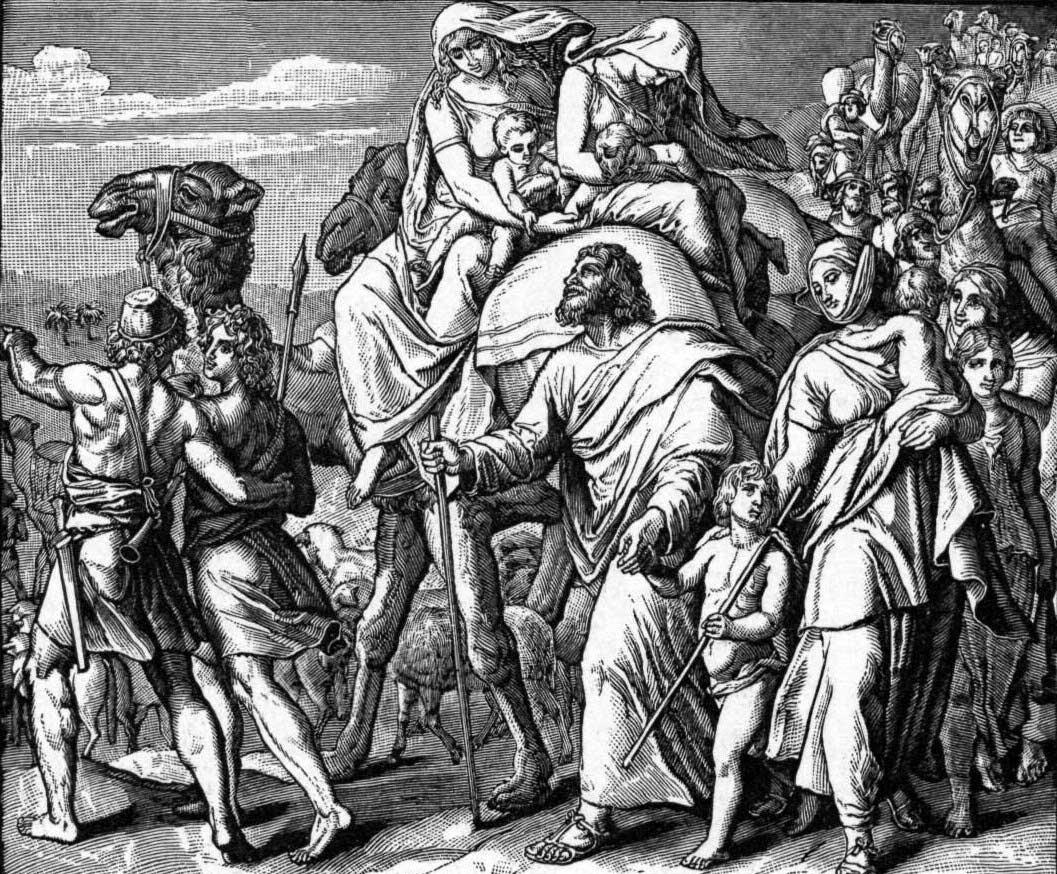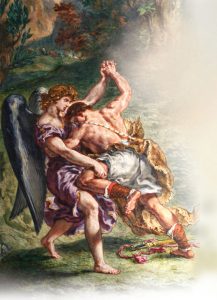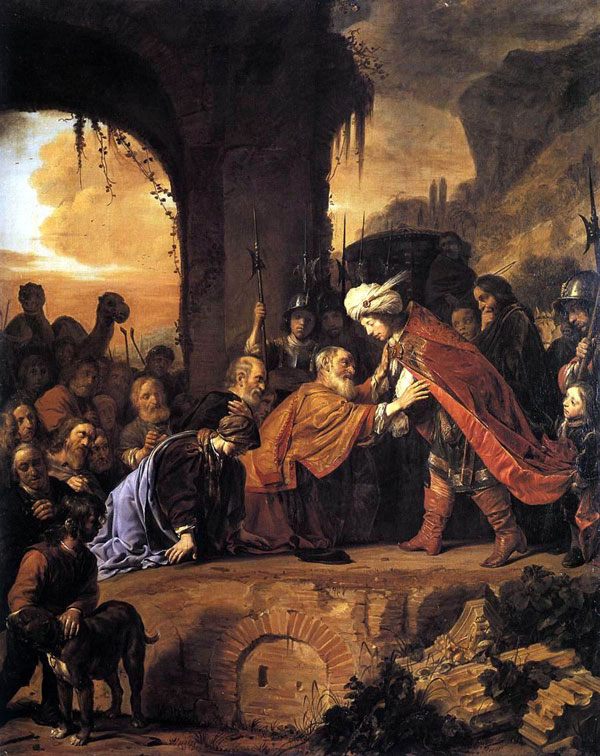
With the death of Samson the Israelites had lost one of their biggest protectors. Their adversaries were in awe of him and hence till the time Samson was by their side, the Israelites felt safe. It was only through deceit that the Philistines succeeded in capturing him. All the Judges who preceded Samson had rebuilt the Israelite army to fight their contemporary enemies. But Samson being divinely empowered with the spirit of God, had fought all the battles against his adversaries alone, irrespective of their quantitative strength and had in fact won the battles. This he had achieved all by himself, without taking any help – by virtue of his own might and capacity, which made Samson stand out as unique among the judges.
Although Samson is commonly believed to be the last ‘Judge’ a few scholars also consider Eli, a High Priest of Shiloh and Samuel, who worked under him to be ‘Judges’.
For the Israelites, all was well atleast for a few years following Samson’s death. Samson had taken the lives of thousands of Philistines at one time though he lost his own in the battle. The dread that this instilled in the Philistines persisted much after Samson’s death and so the Israelites did not face any external aggressions during the period. The Jews once again began flocking to Shiloh, the city which housed the ‘Tabernacle’. It was the highest place of pilgrimage of the Israelites. Eli, the High Priest (Kohen Gadol) of Shiloh was respected by all the Jews for his conduct and devotion to God and thus naturally became the de facto chief of the Israelites. The Jews approached Eli for just about every problem or issue that concerned them. Eli was the fourth of the high priests after Moses-Joshua- Phinehas. The period we are referring to here, belongs to the 10th century BC.
It was around the same time that in the town of Ramathaim-Zophim near the Mount Ephraim lived an Israelite named ‘Elkanah’. He belonged to the tribe of Levy. Elkanah was very religious by nature and was strongly devoted to God. In fact Elkanah’s entire family was religious and he took them to Shiloh thrice a year as per the preaching in the ‘Torah’. With their regular journeys between Ramathaim-Zophim and Shiloh, Elkanah and his family members were known to almost all the people who lived in the villages adjoining the route connecting the two places and they all respected him. In fact many joined him on the way to Shiloh for the pilgrimage. Elkanah’s pilgrimages played an important part in establishing the religious importance of Shiloh in the minds of the contemporary Jews.

Elkanah practiced polygamy and had two wives – Hannah and Peninnah. Hannah had no issue and hence faced a lot misery and pain due to the prevalent social beliefs. During one of her pilgrimages to Shiloh she wept before God and pouring her woes in her prayer, she asked God for a son and in return, pledged to commit his life in God’s service. To her immense joy, Hannah conceived and bore a son, who was named Samuel. His happy play delighted her no end. But she did not forget the promise she had made to God and as Samuel reached a particular age, she took him with her to Shiloh to the High Priest Eli. Hardening her heart, she narrated the facts to Eli and handed over Samuel to him in the service of God.
Eli was quick to spot his successor in this bright child. Eli’s own sons were incapable and worthless. They both misused the position and the status of their father and their family. Moreover, as Eli had grown old they tended to disregard him, so says the story. Considering the child to be a divine indication, Eli happily accepted Samuel and mentored him.

God revealed himself for the first time to Samuel when he was just a small child. Once at the Tabernacle, when he was resting after finishing his everyday chores, Samuel heard someone call out his name. Samuel initially assumed it was Eli and so went and stood before him. Eli, however, denied having called out to him. But this happened thrice and Eli realised that the voice was the God’s, and instructed Samuel on how to respond if it happened again.
God spoke to Samuel once he responded, so says the story. But all that God spoke was not pleasant, to say the least. The sins of Eli’s sons had angered God as much as the fact that Eli had not tried to check them in good time. God pronounced also, His decision that He was soon going to teach them a lesson. Numb at hearing the reality, Samuel nonetheless narrated it to Eli. Earnestly accepting God’s decision, Eli himself explained it to Samuel. “God’s Will and Word always prevail. His decision is in any case the best!”
Eli was now all the more convinced that his decision of making Samuel his successor was indeed appropriate. As he grew up, all could naturally witness the qualities of strong faith in God and fortitude in Eli. All those who came in his contact were influenced by his character and felt convinced of his capacities as their future leader.
In the meantime, better prepared, the Philistines once again attacked the Israelites. In the Battle of Aphek that ensued, around 4 thousand Israelites lost their lives. On hearing about the news, a few Israelite elders recollected that during Joshua’s time, the ‘Ark of the Covenant’, one of the holiest of possessions of the Jews, accompanied the Israelite army to the battlefield in honour and glory amidst the beats of music. Thinking on these lines, a few Israelites came to Shiloh to meet Eli and narrated all the facts to him. They wanted to carry the ‘Ark of the Covenant’ with them to the battlefield. Eli consented and had his two sons guard the Ark.
The mere presence of the ‘Ark of the Covenant’ pumped up the Israelites with zealous valour and initially they even seemed to advance towards success. But soon the tables turned and the Israelites had to beat the retreat. 30 thousand of their troops fell in the battle. They also lost both the sons of Eli and most importantly the holy ‘Ark of the Covenant’ fell in the hands of the Philistines – their main adversary.
On hearing the news, Eli suffered a heart attack and died on the spot. Eli, who had led the Israelites for the last forty years, who was their main support and was highly respected, was no more. He was 98 when he passed away. (To be continued…)












